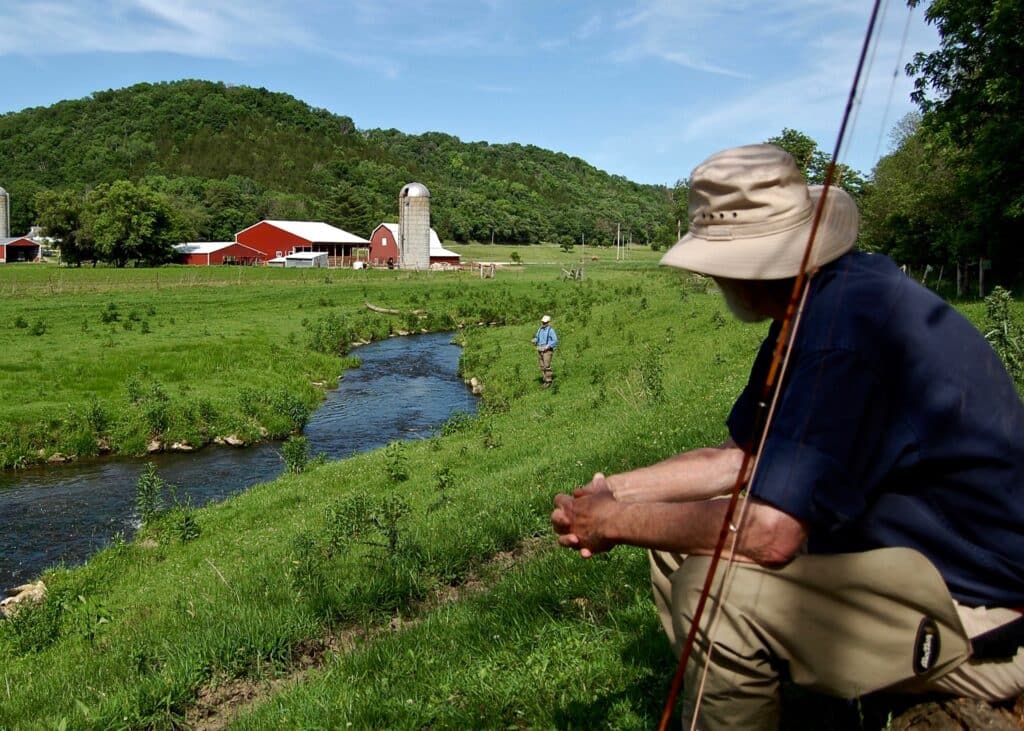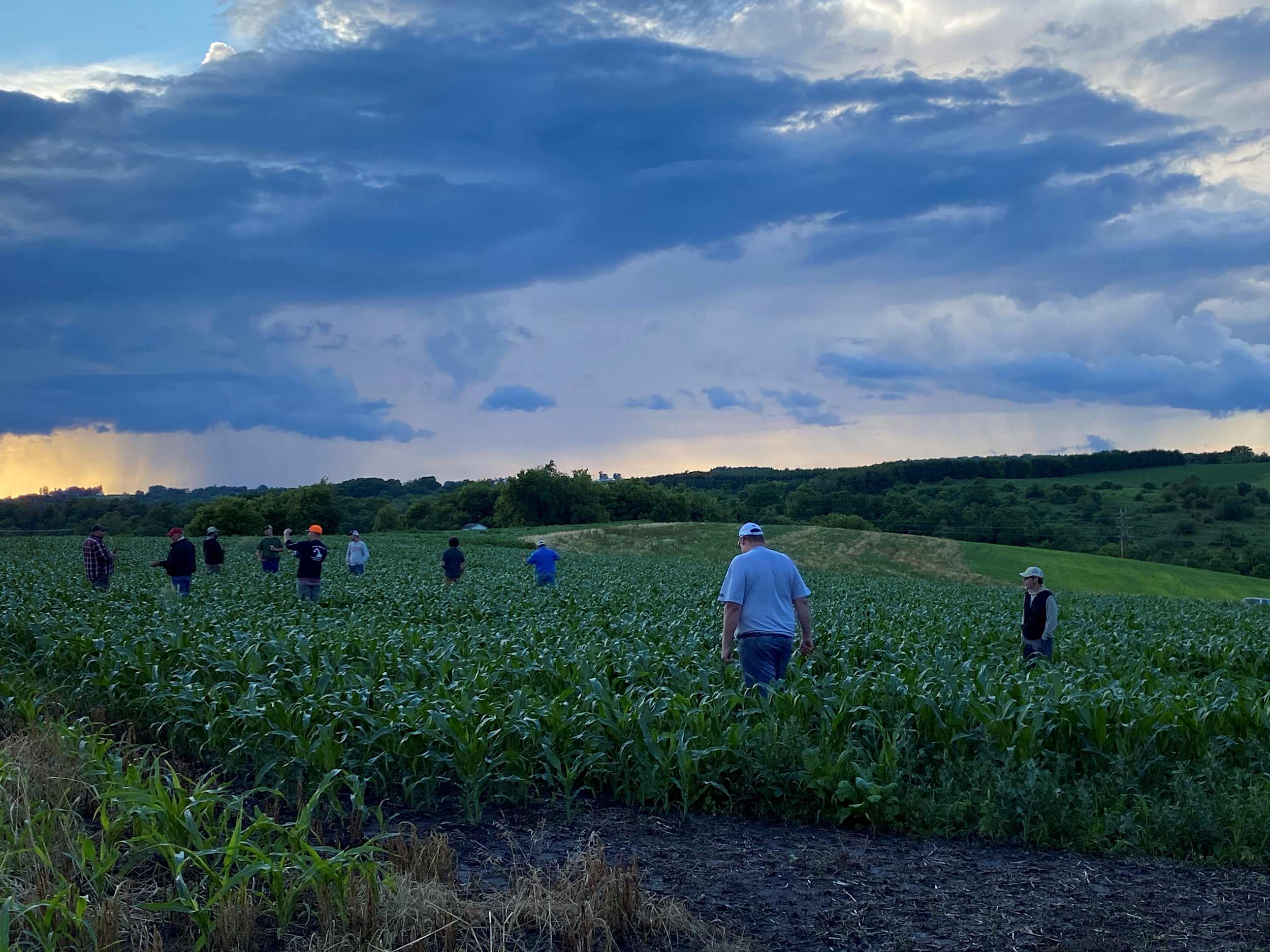Funding
We fund farmer-driven projects that
improve farms and fish habitat

What's New?

Fishers & Farmers Partnership Announce Over $200k for Fish Habitat Conservation
The Fishers and Farmers Partnership (FFP) proudly announces the allocation of over $200,000 to bolster soil health and water quality initiatives in five states within the Upper Mississippi River Basin (UMRB). These locally-driven projects are designed to enhance agricultural practices, preserve fish habitats, tackle root causes of watershed issues, foster landowner engagement, and advance communication, monitoring, and scientific endeavors.
In 2024, the project spectrum encompasses a range of impactful endeavors, including the application of science-based strategies to support strategic habitat conservation in Missouri, Minnesota, Illinois, Wisconsin, and Iowa. Furthermore, efforts are underway to expand outreach mechanisms and processes to promote regenerative agricultural practices throughout the UMRB. An interactive workshop, situated in the proximity of Illinois, Iowa, and Wisconsin borders, is set to facilitate dynamic exchanges, enabling participants to gain fresh insights, pose pertinent questions, and chart their individual paths forward. Additionally, ongoing support is being extended to existing watershed councils and alliances in Illinois, aiding in outreach, technical assistance, watershed planning, and monitoring.
Heidi Keuler, Fishers & Farmers Coordinator, underscores the significance of collaborating directly with farmers and local leaders, emphasizing the transformative perspective this engagement brings to conservation efforts. Keuler notes, “These farmers and watershed leaders are driven by a profound commitment to conserving soil resources and nurturing healthier lands for future generations. Our support for those actively engaged in on-the-ground conservation work is the bread and butter of Fishers & Farmers.”
Since its inception in 2009, the Fishers & Farmers Partnership has allocated over $2.1 million to locally-led projects, leveraging funds at a 2:1 ratio. This has resulted in a total funding support exceeding $4.2 million for fish habitat conservation endeavors aimed at enhancing soil health and water quality across the Upper Mississippi River Basin.
Funding For Stream/Farm Projects
Fishers & Farmers Partnership awards National Fish Habitat Partnership funding to locally-led projects in upper Mississippi River Basin watersheds each year. Funded projects improve farms and fish habitat; address a root cause of watershed problems; support landowner engagement, communications, monitoring, science, or construction; and align with our Strategic Plan. Non-government, county, state or federal agriculture and natural resources organizations may apply. One-to-one cost share is required. Applications are available in the last quarter of the year, due in February. Decisions are made in March.
If you have a project in mind, we encourage you to reach out to a Fishers & Farmers Partnership steering committee member or our coordinator Heidi Keuler for an informal conversation. We want local teams to meet their goals, and we can advise about project design, resources, and our selection criteria.

Funded Projects
- 2024
- 2023
- 2022
- 2021
- 2020
- 2019
- 2018
- 2017
- 2016
- 2015
- 2014
- 2013
- 2012
- 2011
- Coordination & communication
- Dam removal
- Fish Passage
- Managed grazing
- Monitoring & data
- Nutrient retention
- Outreach & demonstrations
- Oxbow Restoration
- Peer-to-peer learning & mentoring
- Perennial cover & buffers
- Soil health & cover crops
- Stream & wetland restoration
- Water retention & sediment control
2024 | FFP Workshop – Galena, IL
These unique workshops support farmer leadership and collaborative action, so farms and fish thrive together. They connect farming neighbors, landowners, and local collaborators to learn, share and define next steps forward.
2024 | Valley Stewardship Network
In the Kickapoo (WI) and adjacent watersheds, private, working lands conservation is key for watershed protection. Best management of upland and riparian farmland is especially critical to aquatic health, sustainability of agriculture, and the economic benefits of cold-water fisheries.
2023| Conservation Drainage in Illinois
Conservation drainage practices have been a critical component of statewide efforts in Illinois.
2023| Devils Creek Watershed
A stark difference between the upper and lower part of the watershed forces this group to think outside the box and pursue two major approaches.
2023| Vermillion River Watershed
This unique project combines on-the-ground habitat restoration with landowner outreach and education to create tangible upland and in-stream habitat benefits.
2023| Huzzah/Shoal Creeks Woodlands for Wildlife
Using conservation marketing, an innovative approach being used in this geography, to engage landowners willing to adopt agricultural BMPs (Best Management Practices).
2023| Boone River Watershed
Leveraging state water quality initiative funds to increase Boone River Watershed oxbow restorations for Topeka Shiner and water quality.
2022 | Bridge to Soil Health
Land Stewardship Project’s Bridge to Soil Health program is scaling-up the number of crop & livestock farmers who are restoring soil and talking publicly about resulting financial and environmental benefits.
2022 | Soil Regeneration
Farmers, Izaak Walton League, agencies and ag service providers are advancing farming systems to restore soil health in Minnesota, including education, events, forums, interviews, workshops, tours and demonstration plots.
2022 | Le Sueur River Watershed
Farmers, UM-Mankato Water Resources Center and Waseca SWCD are advancing soil health and cover crop adoption in Le Sueur River Watershed including funds, mentoring and technical advice.
2022 | Seven Mile Creek Watershed
Farmers, Great River Greening and Nicollet SWCD are hosting field days, community events, demonstrations and discussions to advance cover crops, crop rotation and data collection showing results of conservation practices.
2022 | Boone River Watershed
Farmers, Boone River Watershed Partnership, The Nature Conservancy, Iowa Rivers Revival, Iowa Soybean Association and Wright SWCD are restoring oxbows to create Topeka shiner spawning habitat in Boone River watershed.
2021 | Boone River Watershed
Farmers, Boone River Watershed Partnership, The Nature Conservancy, Iowa Rivers Revival, Iowa Soybean Association and Wright SWCD are restoring oxbows to create Topeka shiner spawning habitat in Boone River watershed.
2021 | Vermillion-Illinois Watersheds
Farmers, The Wetlands Initiative, NRCS, USFWS, National Fish & Wildlife Foundation, Illinois Corn Growers, University of Illinois, McKnight Foundation and others are advancing use of small tile-treatment wetlands on row-crop farms.
2021 | Cannon River Watershed
Farmers, Clean River Partners, Rice SWCD, St. Olaf College, MPCA, Minnesota DNR and McKnight Foundation are expanding cover cropping in Heath, Rice and Wolf Creek watersheds, including farmer-to-farmer and farmer-to-student learning.
2021 | Kickapoo & Bad Axe Watersheds
Valley Stewardship Network, Tainter Creek Farmer-Led Watershed Council, West Fork Watershed Neighbors Council, UW-Stevens Point, UW-Madison, UW-LaCrosse, Wisconsin DNR, City of Viroqua and Viroqua FFA are building watershed councils, STRIPS, and FFA regenerative ag activity.
2020 | Boone River Watershed
Farmers, Boone River Watershed Partnership, The Nature Conservancy, Iowa Rivers Revival, Iowa Soybean Association and Wright SWCD are restoring oxbows to create Topeka shiner spawning habitat in Boone River watershed.
2020 | Relay Cropping & Replicated Strip Trials
Farmers, Iowa Soybean Association and Northeast Iowa Resource Conservation & Development are implementing relay cropping and replicated strip trials to evaluate for yield and environmental impact, and facilitating dialogue among farmers.
2020 | Mower County Soil & Water Conservation District
Farmers, Mower SWCD, Minnesota Department of Agriculture, a consultant and others in Root River Field to Stream Partnership are demonstrating and communicating about Prairie Strips on 10-20 targeted sites.
2020 | Monroe County Land Conservation Department
Farmers, landowners, Monroe County Land Conservation and Trout Unlimited are innovating to monitor effectiveness of streambank restoration practices before and after storms, to enhance floodplains, flow regimes and connectivity.
2019 | Bad Axe & Kickapoo Rivers
Valley Stewardship Network is supporting four landowner-led watershed councils and demonstrating best management practices on upland and riparian farmland in two major watersheds.
2019 | Rice Creek & Cannon River Watersheds
Farmers are planting cover crops for 3 consecutive years and Clean River Partners, St. Olaf College and Minnesota DNR are coordinating, monitoring and conducting a fish count to show impacts.
2018 | Boone River Watershed
Boone River Watershed Partnership farmers, The Nature Conservancy, Kossuth and Wright SWCDs, Iowa Soybean Association and Iowa DNR are restoring stream oxbows to create habitat for endangered Topeka shiner minnows.
2018 | Tainter & Conway Creeks
Tainter Creek Farmer-Led Council, Valley Stewardship Network, Trout Unlimited, Wisconsin DNR and NRCS are stabilizing a mile+ of eroding banks and creating in-stream fish habitat on Tainter and Conway creeks.
2018 | Rice Creek – Cannon River Watershed
Farmers are planting cover crops on 1,000 of 3,469 tillable acres in Rice Creek watershed for 3 consecutive years. Monitoring and a fish count will show impacts.
2017 | Peno Creek Watershed
Missouri Department of Conservation, NRCS and others are providing technical and cost share assistance to Peno Creek Cooperative Partnership for watering systems, riparian corridor tree plantings, stream fencing and stream crossings.
2017 | Kickapoo River Watershed
Valley Stewardship Network is creating the first farmer-led Iowa State University Science-based STRIPS (Trials of Rowcrops Integrated with Prairie Strips) demonstration and farmer-to-farmer education site in Wisconsin.
2017 | Boone River Watershed
Boone River Watershed Partnership farmers, The Nature Conservancy, Kossuth and Wright SWCDs, Iowa Soybean Association and Iowa DNR are restoring stream oxbows to create habitat for endangered Topeka shiner minnows.
2017 | Shoal Creek Watershed
Farmers, Shoal Creek Woodlands for Wildlife Partnership and Ozark Land Trust are implementing a Marketing Action Plan to increase infiltration, improve stream channel habitat and reduce sediment and nutrient loading.
2017 | Galena River Watershed
Building on extensive county-wide planning, Jo-Daviess Soil and Water Health Coalition farmers and local partners are hosting workshops and facilitated discussions to establish consensus and active participation in watershed restoration.
2017 | Rock Creek Watershed
Project partners are removing/modifying low head dams that inhibit fish movement, enhancing fish habitat and building stream crossings for farmland access to protect 32 fish species near Osage, IA.
2016 | Hutchins Creek Watershed
Farmers, USFS, USFWS, Partners for Fish & Wildlife, Illinois Department of Agriculture and Union SWCD are stabilizing streambanks, constructing riparian buffers and enhancing habitat for fish and mussel species of concern.
2016 | Boone River Watershed
Boone River Watershed Partnership farmers, TNC, Kossuth and Wright County SWCDs, Iowa Soybean Association and Iowa DNR are restoring stream oxbow habitat for the endangered Topeka shiner minnow.
2016 | Root River Watershed
Root River Field to Stream Partnership farmers, MN Department of Agriculture, county agencies, TNC, MN Ag Water Resources Center and MN DNR are evaluating nutrient and sediment loss and conservation effectiveness with field-edge and in-stream monitoring.
2016 | Spring Creek Watershed
Farmers and Missouri Department of Conservation are installing alternative water systems, riparian fencing and reinforced stream crossings, restoring riparian corridors, developing managed grazing plans and planting cover crops to improve fish habitat.
2015 | Boone River Watershed
Farmers, Iowa DNR, The Nature Conservancy, Iowa Soybean Association and county SWCDs are restoring stream oxbows to reduce nutrient runoff and create habitat for the endangered Topeka shiner minnow.
2015 | Seven-Mile Creek Watershed
Seven Mile Creek Watershed Partnership (farmers, Great River Greening, Nicollet SWCD and NRCS) is installing water storage systems and bioreactors to reduce ravine erosion, sedimentation and nutrient runoff to the creek.
2014 | Peno Creek Watershed
Missouri Department of Conservation, NRCS and others are providing technical and cost share assistance to Peno Creek Cooperative Partnership for watering systems, riparian corridor tree plantings, stream fencing and stream crossings.
2014 | Rock Creek Watershed
Iowa DNR and NRCS are working with a farmer to remove a low-head dam inhibiting fish movement, opening approximately five miles of stream habitat to fish.
2014 | Big Muddy Wetlands
Landowners and US Forest Service are enhancing wetlands in swale and ridge topography and increasing water holding capability in an oxbow lake/button bush marsh along Big Muddy River.
2014 | Rice Creek Watershed
Clean River Partners is facilitating three farmer-led projects (installation of two water management drainage structures, 300 acres strip-till, 200 acres cover crops) with integrated on-farm demos, meetings, tours and research.
2014 | Kickapoo River Watershed
Valley Stewardship Network is establishing a demonstration site, hosting landowner discussions about economic benefits of best farm management practices, restoring 30 acres of tilled floodplain and conducting water quality monitoring.
2013 | Engaging Landowners Workshops
Missouri Department of Conservation is leading landowner engagement workshops for federal/state/county/NGO staff in a five-state area.
2013 | Boone River Watershed
Farmers, Iowa DNR, The Nature Conservancy, Iowa Soybean Association and county SWCDs are restoring stream oxbows to reduce nutrient runoff and create habitat for the endangered Topeka shiner minnow.
2013 | Bourbeuse / Meramec River Watershed
Farmers and Missouri Department of Conservation are implementing managed grazing to add value to farms and reduce sedimentation, nutrient loading & streambank instability.
2012 | Rush/Pine Watershed
A 40-member farmer-led council, two sub-watershed groups, and cover crop program are addressing water quality and fish habitat issues.
2012 | Seven-Mile Creek Watershed
Farmers, Nicollet Soil & Water Conservation District, NRCS, Great River Greening and Minnesota DNR are installing sediment control structures and other practices to reduce ravine erosion, sedimentation and nutrient loss.
2011 | Boone River Watershed
Farmers, Iowa DNR, The Nature Conservancy, Iowa Soybean Association and county SWCDs are restoring stream oxbows to reduce nutrient runoff and create habitat for the endangered Topeka shiner minnow.

